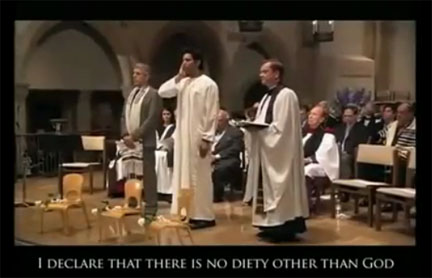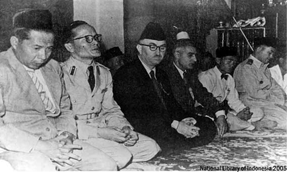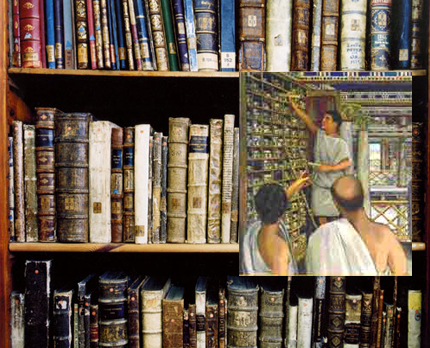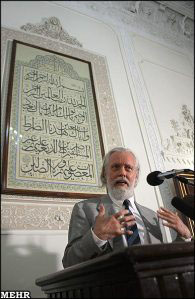
There is a beautiful recording on Youtube of an azan given at an interfaith gathering at a cathedral by Algerian Ben Youcef

There is a beautiful recording on Youtube of an azan given at an interfaith gathering at a cathedral by Algerian Ben Youcef

Whatever you think about “religion,” you must admit that “religion” is not something that can be avoided. There are countries where a person has little choice but to accept the dominant religion imposed and there are places where one can shop for religion more easily than clothes. As an anthropologist I accept the fact not only that we have evolved (even if Darwin did not start a religion) and that all members of Homo sapiens that have been encountered and studied have something that deserves to be called “religion,” even if only in the minimalist sense of Victorian Quaker Edward Tylor that religion is at bottom a belief in spirits. There are many religions out there and several important scholarly organizations devoted to the study of religion in one way or another, but add a new one to the mix.
Anthropologist Gabriele Marranci, founder of the journal Contemporary Islam, has formed the Worldwide Association for the Study of Religion (WASR perhaps for those who like acronyms) If you do not have a Facebook account, join the Wiki.
This group is open to scholars studying religion or with an interest in religion and aims to develop a worldwide association accessible to any scholar or student wherever they might live. This is a working group to develop ideas and the structure for this new association, which aims also to remove the gap between scholars working in developing countries and those in the West. This group is open to scholars studying religion or with an interest in religion and aims to develop a worldwide association accessible to any scholar or student wherever they might live. As scholars the goal of the association to study religion in all its forms and not to lobby for any particular religion or even for the absence of religion. This is a working group to develop ideas and the structure for this new association, which aims also to remove the gap between scholars working in developing countries and those in the West.
As Marranci notes, his effort is not to replace organizations like the American Academy of Religion, but to expand the network of scholars who study religion worldwide. With the Internet and Skype, scholars are no longer captive to meeting colleagues at professional meetings, important as these remain. Feel free to join today and tell your friends.
On Facebook; you can request joining (which is free) by clicking here. You can also join via the Wiki.

Note: The Qur’an can be divided into thirty equal parts. One part takes only twenty-four reading minutes, and the whole Book requires 12 reading hours. There are 114 chapters, and 6,236 Arabic verses (Abu ‘Amr Al-Dani in his book Al-Bayan), containing 77,439 Arabic words (reported by Al-Fadl bin Shadhan) made up of 371,180 Arabic letters (Abdullah b. Kathir reporting Mujahid, although there are different accounts). By contrast the King James Version of the Christian Bible (OT and NT) has 783,137 words and 3,566,480 letters. Muslims believe the Quran in Arabic is the actual Word of God given to Muhammad through a series of revelations from 610-632 C.E. and not written down as a “book†until after Muhammad died.
Given the general ignorance in American society of Islam, especially the theology based on the teachings in the Quran, it is important to go back to the beginning, the essence, the opening, the words that are by definition significant to all Muslims. This eloquent key is the opening (fatiha) of the text, a set of verses as repeated by Muslims daily as the Lord’s Prayer is by Christians. Continue reading Tabsir Redux: Opening the Qur’an

Dr. Mohammad Fadhil Jamali (third from left) at the Grand Mosque, Bandung.
There are many ways of describing Islam. One of the more profound personal testaments is a letter from Muhammad Fadhl Jamali, Prime Minister of the Kingdom of Iraq in the 1950s. As a top government official, he was imprisoned after the July 1958 Revolution in Baghdad and for a year and a half lay under a death sentence. While in prison he wrote the following letter (dated 25 March 1961) to his son, ‘Abbas, at the University of Beirut. The translation from Arabic is by Dr. Jamali.
Dear ‘Abbas,
After presenting you my good greetings, I pray for your safety, success and guidance…. Continue reading Tabsir Redux: Islam, A Diplomatic View

I recently received an interesting email, not the usual spam from the widow of the last military dictator of Nigeria seeking a bank account to deposit here husband’s stolen millions, nor an enlargement claim for a part of my anatomy. No, this was a special announcement from Gerlach Books in Berlin. As you read the announcement, you can imagine my surprise to be on this list with a mere professor’s salary.
Today we would like to draw your attention to the largest scholarly library we have offered as an entity ever.
*** Hans Daiber’s Scholarly Library on Islamic Thought & Philosophy – 12,500 items ***
Each item in this library is listed in the three volume Bibliography of Islamic Philosophy edited by Hans Daiber and published by Brill as part of HdO – Handbuch der Orientalistik.
Hans Daiber’s library includes all known publications in western and non-western languages from the 15th century to the present. The total number of items is approximately 12,500 primary and secondary sources.
Today the library itself is put up for sale.
The total price of the library is 775,000.00 EUR (seven hundred and seventy five thousand Euros) plus shipping.
Apart from the hubris (“all known publications… from the 15th century to the present”), I can only imagine the size in shittim wood cubits of this Noachian bibliographic ark. Continue reading One for the record books

Islamic Studies building, McGill University, Montreal
[I post here a letter from Richard Martin on the passing of Charles Adams.]
Dear Colleagues,
It is with great sadness that I learned yesterday that Charles J. Adams died in Mesa, Arizona on March 23 of this year. During his final years he lived in retirement in Arizona, suffering from the steady deteriorating effects of Parkinson’s Disease, which affected his body but not his clear, sharp mind. I had the good fortune to be able to visit Charles three weeks before his demise in his retirement village in Mesa, Arizona, where he lived with a friend and companion who looked after him in recent years. We had lunch together and got out books and reminisced about the evolution of the field of Islamic Studies during our lifetime, over which he had exerted such great influence through his many student and writings. He nonetheless felt sad and helpless that in his declining state of health he was powerless to any longer be a voice in the academic study of religion in the current climate of suspicion, fear and hate about Islam in the public sphere. Continue reading Charles J. Adams (April 24, 1924 – March 23, 2011)

Performing Islam is the first peer-reviewed interdisciplinary journal about Islam and performance and their related aesthetics. It focuses on socio-cultural as well as historical and political contexts of artistic practices in the Muslim world. The journal covers dance, ritual, theatre, performing arts, visual arts and cultures, and popular entertainment in Islam influenced societies and their diasporas. It promotes insightful research of performative expressions of Islam by performers and publics, and encompasses theoretical debates, empirical studies, postgraduate research, interviews with performers, research notes and queries, and reviews of books, events and performances.
Call for contributions for the second issue: Continue reading Performing Islam

Islam and the Goal of Love
by William C. Chittick, The Huffington Post, November 6, 2010 08:20 PM
Muslim scholars who claimed that Islam specifically and religion generally are based on love were not simply talking through their hats, as many readers of my previous post seem to think. They offered plenty of evidence. In order to see its logic, however, we need to remember the two axioms upon which all Islamic thought is built: the reality of God and the messengerhood of Muhammad.
The first axiom does not depend on the Quran. It needs to be accepted before there is any reason to consider Muhammad and the message. If God is not real, then God’s “messages” will be even less real.
This first axiom states that there is only one true reality. Everything else — the universe and all it contains — derives from it. What we call “realities” are in fact non-realities dressed up in fancy clothes.
In the language of Islamic theology, this axiomatic notion is called tawhid (pronounced “toe-heed”), meaning “the assertion of unity,” that is, the unity of the ultimate reality, which is commonly called “God.” Any close reading of the Quran (and the works of practically any Muslim theologian, Sufi or philosopher) will show that tawhid is taken as self-evident to any healthy intelligence. If people miss it, the problem is “forgetfulness,” the outstanding characteristic of the human race. According to the Quran, Adam did not “sin”; rather, “He forgot” (20:115). Continue reading Islam and the Goal of Love